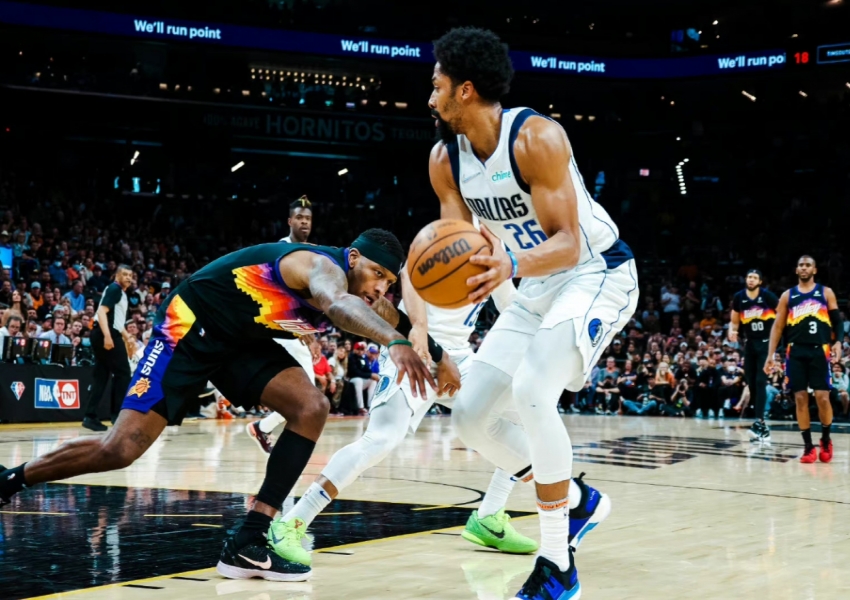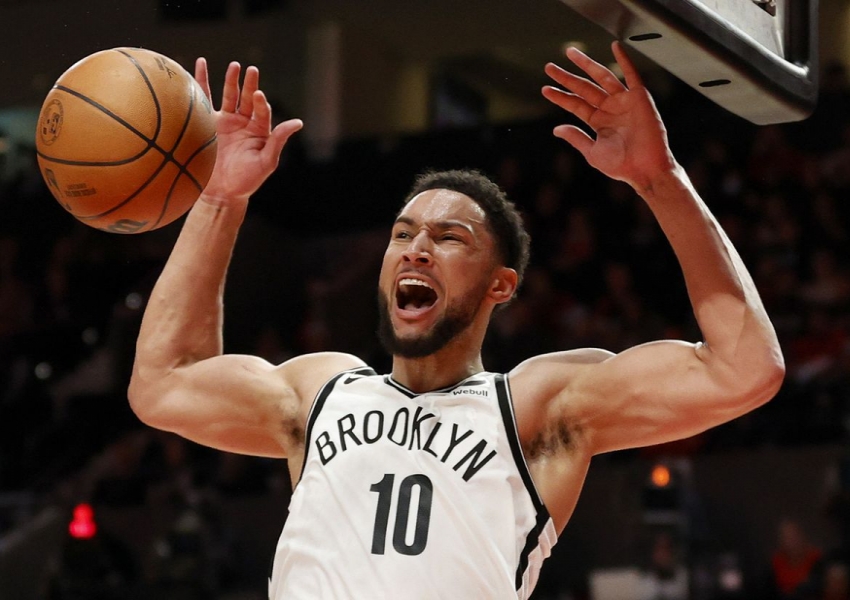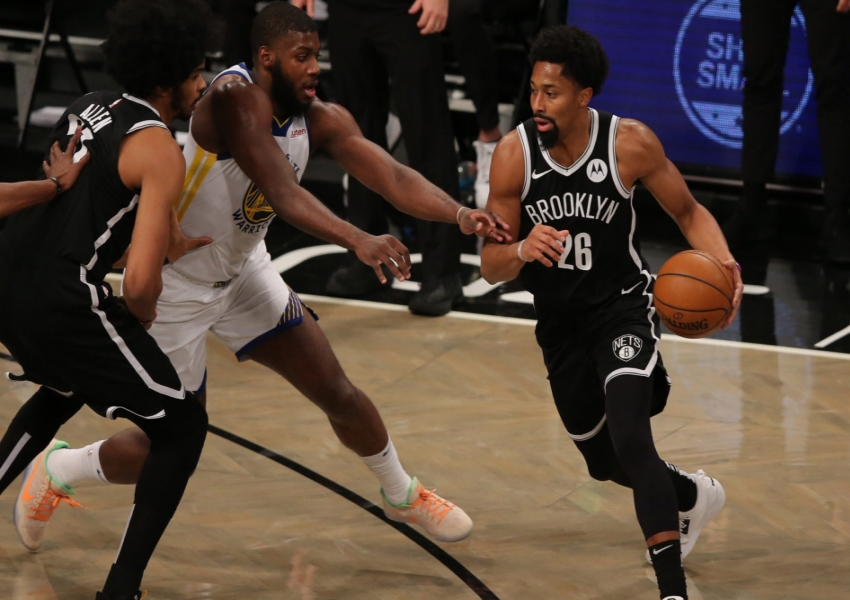Two Weeks Without an Offer: Why Isn't Anyone Grabbing a Former Near All-Star with Career Averages of 20+5?
It has been two weeks since the free agency market opened, and yet, not a single offer has come in for Spencer Dinwiddie. For a player who once averaged over 20 points and 5 assists per game, this silence is both surprising and telling. What happened to Dinwiddie, a player who once showed so much promise and capability?

Spencer Dinwiddie's story is both inspiring and frustrating. As the 38th pick in the 2014 NBA Draft, Dinwiddie's rise from a fringe player to a key contributor was remarkable. He fought his way up from the edges of the league, eventually finding a home with the Brooklyn Nets. During the 2019-2020 season, Dinwiddie averaged 20.6 points and 6.8 assists per game, setting multiple career and franchise records. At that time, he was considered one of the best point guards in the league.

However, just as he was hitting his stride, injuries began to take their toll. Dinwiddie only played in six games during the 2020-2021 season due to a partially torn ACL. This was a critical time for him as he was due for a new contract. The injury drastically affected his market value, and the once-promising star found himself with limited options.

Dinwiddie's attitude towards basketball began to shift around this time. Injury setbacks and a lack of interest from championship-contending teams seemed to dampen his passion for the game. Eventually, he signed a three-year, $62 million contract with the Washington Wizards. But in Washington, Dinwiddie was a shadow of his former self. His playstyle became sluggish, his decision-making hesitant, and his overall performance ineffective. He frequently dribbled out the shot clock, only to pass the ball at the last second, resulting in inefficient personal stats and poor team outcomes. His real offensive plus-minus was -0.2, and his real defensive plus-minus was -0.7.
Despite the Wizards' struggles, they played even worse with Dinwiddie on the court. His selfish behavior angered teammates, leading to his trade to the Dallas Mavericks before the trade deadline.
In Dallas, Dinwiddie quickly rediscovered his old form. Within weeks, he posted a 36-point, seven-assist game and hit a game-winning shot against his former team, the Brooklyn Nets. In the playoffs, Dinwiddie shone brightly, especially in the semifinals where he consistently stepped up in clutch moments. In Game 7, he scored 30 points on 11-of-15 shooting, including 5-of-7 from three-point range, helping the Mavericks reach the Conference Finals.
It was evident that Dinwiddie still had plenty of fuel left in his tank, but his motivation seemed conditional. When he returned to the Nets, his effort waned again. His drive attempts and finishing at the rim were near career lows, highlighting his lack of engagement.
Dinwiddie has been candid about his attitude. In an interview, he said, "I'll tell you this: my crypto portfolio is currently valued in the nine figures. By the next cycle, it could reach ten figures. I guarantee you, once it hits ten figures, you won't hear from me again. I'll retire immediately. I love watching basketball, but I don't want any job related to it. Too much pressure, too many tasks. I don't like it."
This statement reflects a man who views basketball as a job rather than a passion. It explains why no team has been willing to offer him a contract. Teams are hesitant to invest in a player whose commitment to the sport is questionable. They want players who live and breathe basketball, not those who see it merely as a means to an end.
Dinwiddie's career is a testament to his talent and potential, but it is also a cautionary tale about the importance of attitude and motivation in professional sports. His story resonates with the experiences of other players who have faced similar crossroads. Tracy McGrady and Allen Iverson, for instance, both saw their careers fizzle out due to various factors. However, Dinwiddie's case is unique in that his decline is more about his mindset than his physical abilities.
McGrady, a seven-time All-Star and two-time scoring champion, struggled with injuries and team changes in his later years. He bounced from the Knicks to the Pistons, then the Hawks, and even played in China before quietly retiring at age 34. Similarly, Iverson, a former MVP and four-time scoring champion, faced a rough end to his career. After leaving the Nuggets, he struggled to find a team willing to sign him and eventually had to continue his career in Europe.
Dinwiddie's situation differs in that his body still allows him to perform at a high level, but his heart is no longer fully in the game. His focus on his cryptocurrency investments and his clear statements about his future retirement plans have raised red flags for potential suitors.
As of now, Dinwiddie remains without an offer. His career averages of over 20 points and 5 assists per game seem to have lost their luster in the eyes of NBA teams. The market is wary of a player who might not be fully committed to the game. Dinwiddie, with his impressive skills and potential, could still be a valuable asset to many teams. However, his lack of enthusiasm and apparent disinterest in the sport make him a risky investment.
If Dinwiddie truly has lost his passion for basketball, it might be best for him to step away. Continuing to play half-heartedly is unfair to his teammates and the organization that invests in him. With his substantial savings and successful investments, Dinwiddie could comfortably retire and pursue other interests.
Professional sports demand not just physical excellence but also mental and emotional commitment. Dinwiddie's story highlights the importance of having both. While his talent and skills are undeniable, his waning interest in the game has led to his current predicament.
For Dinwiddie, the path forward is uncertain. If he can reignite his passion for basketball and demonstrate his commitment, there might still be a place for him in the NBA. However, if his heart is no longer in it, perhaps it is time for him to move on and let his legacy rest on the high points of his career.
Copyright Statement:
Author: focusnba
Source: FocusNBA
The copyright of this article belongs to the author. Reproduction is not allowed without permission.
Recommended Blog
- China's Basketball Future in Doubt: Lin Wei's Permanent Ban?
- Taking a Break! Cui Yongxi Temporarily Exits NBA! China's Top Forward Shows True Grit...
- Just 1 Point! Team USA Nearly Upset, Embiid's Bold Comments Backfire!
- 7’0”, 7’5” Wingspan! The Second Overall Pick Already a Bust After Four Games?
- 51-Point Man to Replace George? Lakers Fast-Track Trade! The Ideal Third Option...
- A Sad Ending for Another Star: Once the Second Best Shooting Guard in the East, Now Out of Work for 150 Days
- Keep Dismantling! Last Year They Sold Their 3D Guard, This Year Their 3D Center. What’s the Bucks’ Rebuilding Strategy?
- Leave, Klay! Even if It Means a Minimum Salary, Don’t Stay with the Warriors
- From Playoff Fringe to NBA Champions: How Brad Stevens Turned the Celtics into a Contender in Just Three Years
- No Takers! NBA's Biggest "Negative Asset," 29-Year-Old All-Star, 15 Trade Attempts, 15 Failures